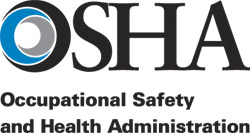OSHA, and several federal agencies with jurisdiction over employment law have spent years pushing a greatly expanded theory of employer liability known as a joint employer standard.
Newly-released records from the Obama Administration’s Occupational Safety and Health Administration (OSHA) show that they have been right in the middle of this and that they have conducted a large-scale, coordinated effort to expand franchisors’ liabilities.
This issue came to light when a draft document containing a questionnaire for use by OSHA investigators was reported in Politico. The ludicrous questionnaire contained exactly zero questions dealing with matters involving health or safety. Instead, the scores of questions demanded information such as “how does the franchisee obtain the franchise,” and “does corporate require franchise to use any specific computer system.”
The goal was to be able to establish that both the franchisor and franchisees are the employer of the covered employees and thus are jointly liable when employment law violations occur.
To gain a better understanding of what OSHA is doing, Americans for Limited Government Foundation filed a Freedom of Information Act request (FOIA) with OSHA seeking background information. In response, OSHA released 749 pages of responsive records to us.
From the records released to us we know that OSHA and other Department of Labor personnel have expended a massive number of man hours on this issue. Personnel at many levels across the country have been involved.
The McDonald’s corporation was targeted extensively, and spreadsheets tracking information on the company were produced. At one point an agency official noted that a complaint had been filed against Burger King, but decided to not include that information. Apparently that particular complaint didn’t fit the narrative they were looking to create.
Also clear from the correspondence is that Labor Department personnel have a friendly working relationship with union-related entities, such as Fast Food Workers Campaign and the large union federation, Change to Win.
The theory of liability that OSHA is attempting to spread is much like the following scenario.
Suppose on your day off you are driving and get pulled over by a deputy sheriff. Instead of the typical “do you know why I pulled you over?” you are asked a series of questions regarding who you work for, how much money you make, the method of payment that is used by your employer to pay you, whether your employer is incorporated and if so, what type of corporation it is, etc.
Surprised, you ask how these questions could possibly be relevant to anything that you are doing. You are told that the locality is looking for ways to increase liability of employers for their employee’s actions (even those done outside the course and scope of the employment relationship) and as such officers have been instructed to ask these questions in traffic stops. Their goal, you are told, is to be able to hit the “deeper pockets” of the employer rather than just getting citation money from the individual who speeds.
There is also a second motivation. The attempt to make the employer vicariously liable isn’t because the employer has done anything wrong or are in any way culpable. It is instead based on a theory that the “economic realities” of the situation mean that bringing in the employer gives leverage to the agency to obtain a desired outcome, regardless of whether your driving habits are a matter of concern to the employer. In other words, your employer with the power to hire and fire, who really doesn’t want to be involved in this situation to begin with, is likely to lean on you to resolve the situation quickly.
Going back to OSHA, what they are doing is similar. Rather than focusing on individual wrongdoers they are looking at alternative ways to obtain what they want. Believing that franchisors have the economic power to bend franchisees to OSHA’s will, the agency is pressing hard to get what it wants.
They are attempting to make virtually limitless the types of situations in which a corporate entity could be held liable, as an employer, and in so doing are threatening a business model that has enabled many individuals to start from scratch and become business owners.
If OSHA is even the least bit concerned with the consequences of expanding liability in the way it wants, this is not evident from records they disclosed to us.
It’s all about finding the deepest pockets. If that breaks a few things along the way, so be it.
Nathan Mehrens is President of Americans for Limited Government Foundation.








